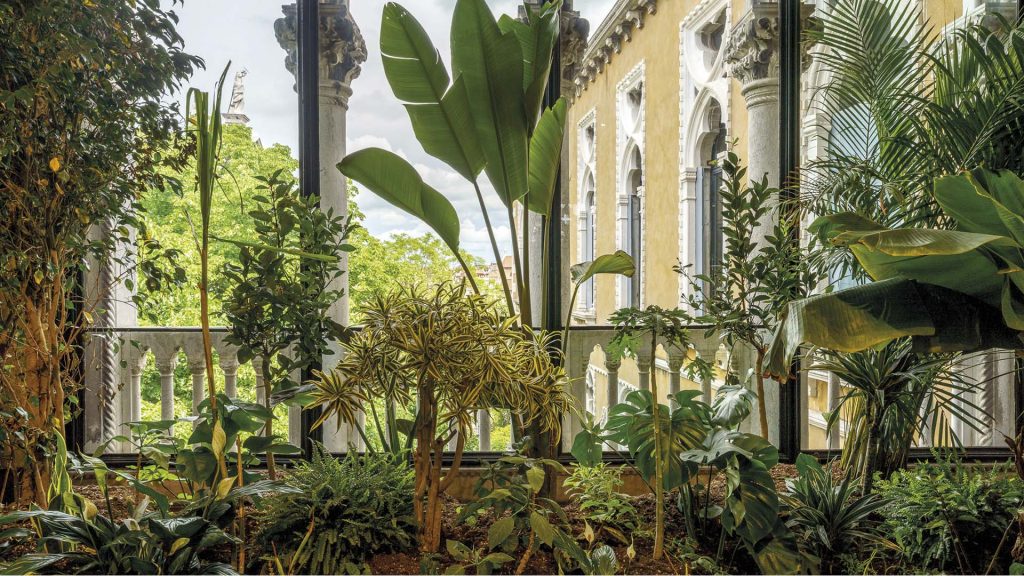
In contrast to the monocultures of colonial-era plantations, the garden of native African plants recreated by Mónica de Miranda at Palazzo Franchetti has cultivated an open space of liberation, possibility, and multiplicity in contemporary times.
The Biennale’s closing days, November 21, 22, and 23, will be the last chance to experience fully the participative art experience at the Portuguese Pavilion. Greenhouse is a ‘creole garden’ that grew over the Biennale months. Artist Mónica de Miranda, historian Sónia Vaz Borges, and choreographer Vânia Gala created a collective art piece that is sure to be remembered as a prime example of diversity culture, a creation that aligns with the 2024 Venice Art Biennale’s theme, Foreigners Everywhere. Antithetical to the monoculture of colonial times, the ‘creole garden’ of native African plants created at Palazzo Franchetti takes after the orchards enslaved people planted as an act of resistance. Over six months, it grew into a space of liberation and potential. A contribution by Angolan artist Kiluanji Kia Henda explores the historical and modern process of anticolonial resistance. The Portuguese Pavilion thus intends to celebrate two important anniversaries: the centenary of Guinea-Bissau leader Amílcar Cabral’s birth and the 50th of the Carnation Revolution, which put an end to dictatorship in Portugal.